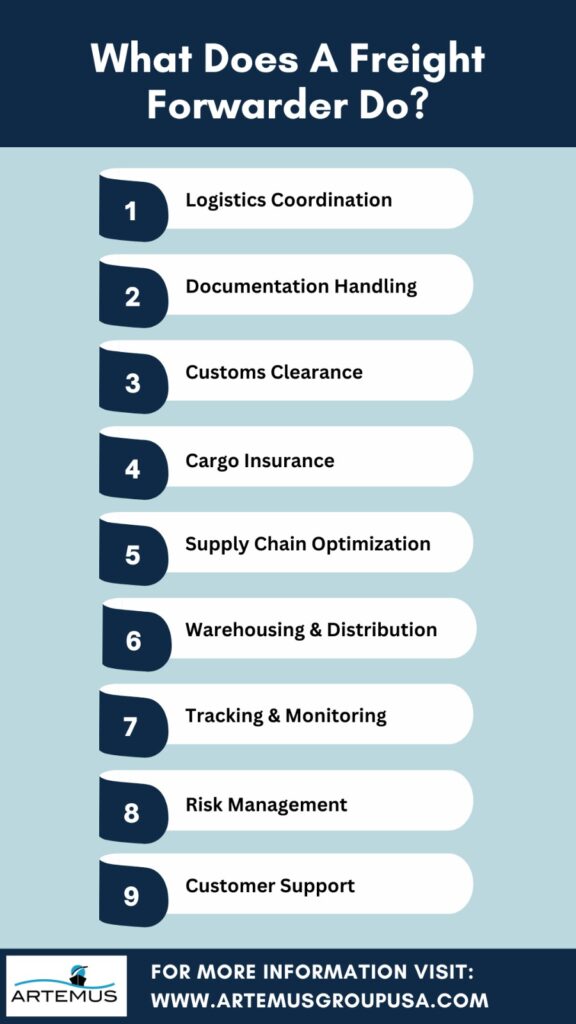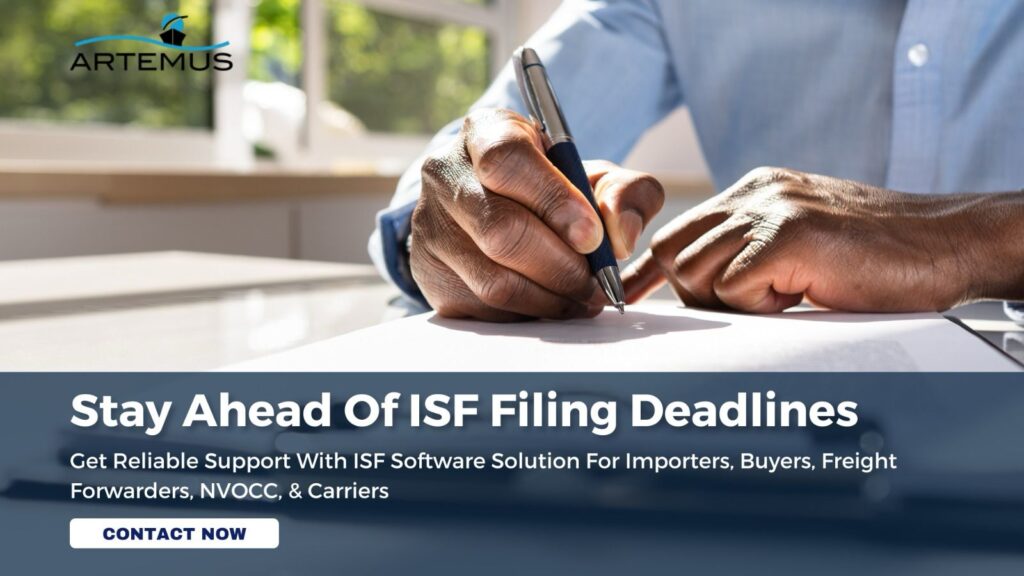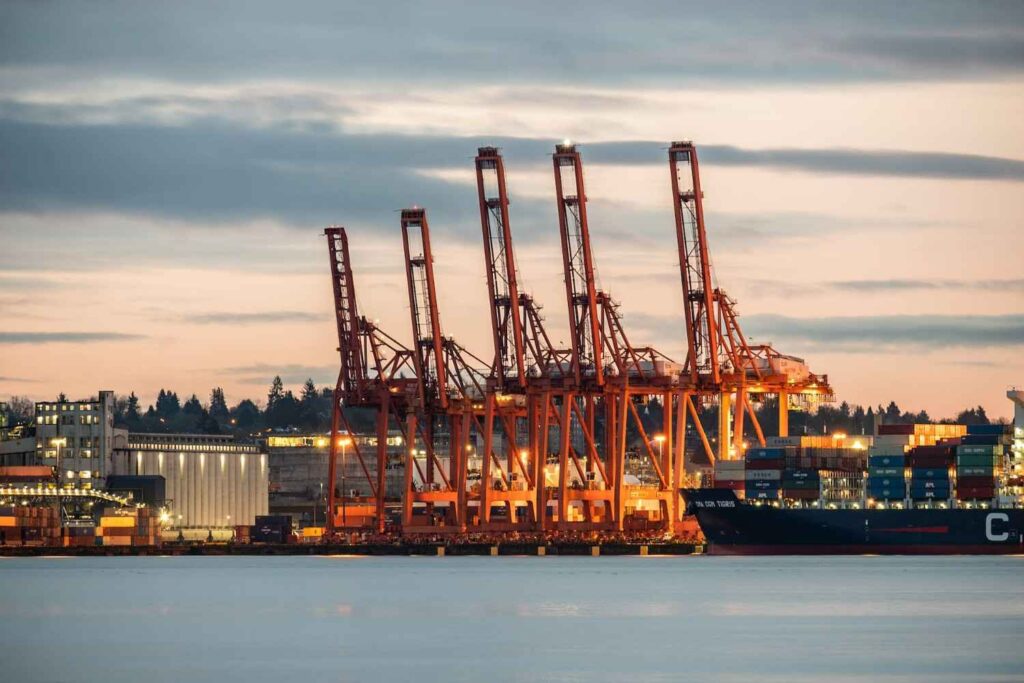
What Is Inbound Logistics & Outbound Logistics? A 2025 Guide
In the dynamic world of supply chain management, understanding the nuances of inbound and outbound logistics is crucial for operational

In the vast ocean of international commerce, businesses rely on skilled navigators to steer their goods safely across borders. At the heart of this intricate web of logistics stands the indispensable figure of the freight forwarder. But what exactly does a freight forwarder do, and why are they so essential to the smooth flow of goods around the world? Let’s embark on a journey to uncover the answers.
Freight forwarders serve as the linchpin of global supply chains, orchestrating the complex dance of shipping, transportation, and customs clearance. These logistical maestros specialize in the seamless movement of cargo from point A to point B, ensuring that goods traverse continents and oceans with precision and efficiency.
We’ll also shine a spotlight on innovative solutions that streamline the freight forwarding process. Artemus Transportation Solutions offers state-of-the-art ISF and AMS compliance software, Artemus empowers freight forwarders to navigate the complex landscape of import security filing and automated manifest systems with ease and efficiency.
Table Of Contents
A freight forwarder serves as a crucial intermediary in the complex web of global trade and logistics. Essentially, they act as facilitators, coordinating the movement of goods from one destination to another on behalf of businesses or individuals. Their expertise lies in navigating the intricacies of shipping, customs regulations, and transportation networks to ensure that goods reach their destination efficiently and cost-effectively.
Beyond simply arranging transportation, freight forwarders handle documentation, negotiate freight rates, and provide valuable advice on logistics strategies. One of the primary roles of a freight forwarder is to optimize the supply chain, streamlining the movement of goods while minimizing delays and expenses. They work closely with carriers, including airlines, ocean liners, trucking companies, and railroads, to secure the most suitable and cost-effective transportation options for their clients’ shipments.
Additionally, freight forwarders manage the necessary paperwork, such as customs declarations and export documentation, ensuring compliance with international regulations. By leveraging their expertise and industry connections, freight forwarders play a pivotal role in facilitating international trade and enabling businesses to expand their reach into global markets.
Related: Shipment Has Been Given A Release Status By Customs
A freight forwarding company is a specialized entity that orchestrates the intricate process of shipping goods from one location to another, domestically or internationally. These companies act as intermediaries between businesses or individuals and various transportation services, such as shipping lines, airlines, trucking companies, and railroads. Their primary function is to manage the logistics of moving cargo efficiently and cost-effectively, handling tasks such as booking cargo space, arranging transportation, and managing documentation.
Freight forwarding companies offer a range of services tailored to meet the diverse needs of their clients. These services often include freight consolidation, customs clearance, warehousing, and distribution. By leveraging their expertise in logistics and their extensive network of transportation providers, freight forwarding companies help businesses navigate the complexities of global trade while optimizing supply chain efficiency.
Related: How Long Does Customs Clearance Take? Key Takeaways

A freight forwarder plays a pivotal role in the global supply chain, offering a myriad of services to ensure the smooth movement of goods from origin to destination.
Below is a breakdown of the responsibilities of a freight forwarder:
Freight forwarders coordinate the logistics of shipping goods, including booking cargo space, selecting the most appropriate transportation modes (air, sea, road, or rail), and determining the optimal route for the shipment.
They manage the extensive paperwork involved in international trade, including customs documentation, export/import permits, bills of lading, and certificates of origin. Ensuring compliance with regulatory requirements is a crucial aspect of their role.
Freight forwarders navigate the complexities of customs clearance procedures, ensuring that shipments meet all regulatory requirements and are cleared for entry into the destination country without delays.
They offer cargo insurance services to protect shipments against loss, damage, or theft during transit. This provides peace of mind to shippers and helps mitigate risks associated with international trade.
Freight forwarders optimize supply chain efficiency by consolidating shipments, optimizing transportation routes, and leveraging their network of carriers to minimize costs and transit times.
Some freight forwarders offer warehousing and distribution services, providing temporary storage facilities and managing the distribution of goods to their final destinations.
They provide real-time tracking and monitoring of shipments, enabling shippers to stay informed about the status and location of their goods throughout the transit process.
Freight forwarders help mitigate risks associated with transportation, such as delays, disruptions, and damage to goods, by implementing effective risk management strategies and contingency plans.
They offer personalized customer support and guidance, assisting clients with any questions or concerns about their shipments and providing expert advice on logistics and supply chain optimization.
Related: Customs Compliance Software: Key Benefits & Top Suggestions
Using freight forwarders offers numerous benefits for businesses involved in international trade. Here’s an overview of several key benefits:
Related:ISF Filing: A Compliance-Related Guide & Software Solution
The freight forwarding industry is poised for significant transformation in the coming years, driven by technological advancements, changing consumer expectations, and evolving global trade dynamics. Here are some key future trends shaping the landscape of freight forwarding:
Related:What Is HTS Code (Harmonized Tariff Schedule)? A Quick Guide

Artemus Transportation Solutions is a leading provider of innovative software solutions tailored to the needs of freight forwarders, offering comprehensive ISF (Importer Security Filing) and AMS (Automated Manifest System) software solutions. With a deep understanding of international trade and customs compliance complexities, Artemus Transportation Solutions empowers freight forwarders to streamline their operations, enhance efficiency, and ensure compliance with regulatory requirements.
Artemus Transportation Solutions’ ISF and AMS software solutions are built on advanced technology platforms and feature user-friendly interfaces, making them easy to integrate into existing workflows and systems. With robust data validation capabilities and built-in error-checking mechanisms, Artemus Transportation Solutions’ software solutions help freight forwarders ensure the accuracy and completeness of their filings, reducing the risk of compliance issues and delays in customs clearance.
Related: How To Check ISF Filing Status? A Step-By-Step Guide
The role of a freight forwarder is to coordinate and manage the logistics of shipping goods from one location to another, ensuring smooth transportation, compliance with regulations, and optimal supply chain efficiency. They act as intermediaries between shippers and carriers, providing comprehensive end-to-end logistics solutions to facilitate the movement of goods domestically and internationally.
An example of a freight forwarder would be a leading logistics company that offers comprehensive freight forwarding services, including transportation management, customs clearance, and supply chain solutions, to businesses worldwide.
The main difference between a freight forwarder and a carrier is that a freight forwarder acts as an intermediary, coordinating and managing the logistics of shipping goods, while a carrier is the entity responsible for physically transporting the goods from one location to another, such as a shipping line, airline, trucking company, or railroad.
The main difference between a freight forwarder and a shipper is that a freight forwarder arranges the transportation of goods on behalf of the shipper, managing logistics, documentation, and customs clearance, while a shipper is an entity that owns or sells the goods and contracts with the freight forwarder to facilitate their transportation.

In conclusion, the role of a freight forwarder is nothing short of indispensable in the realm of international trade. From coordinating complex shipping logistics to navigating customs regulations and ensuring the seamless movement of goods across borders, freight forwarders serve as the linchpins of global supply chains. Their expertise, industry knowledge, and dedication to excellence enable businesses to expand their reach, optimize their operations, and navigate the complexities of global commerce with confidence.

In the dynamic world of supply chain management, understanding the nuances of inbound and outbound logistics is crucial for operational

In today’s interconnected world, businesses rely heavily on global trade to expand their markets, access new resources, and drive growth.

Importing goods for resale in the USA presents a lucrative business opportunity, but navigating the complexities of U.S. customs regulations,
Get In Touch
Artemus’ Software Solutions for ISF, AMS, Japan AFR, eManifest Canada, & Panama B2B filings.